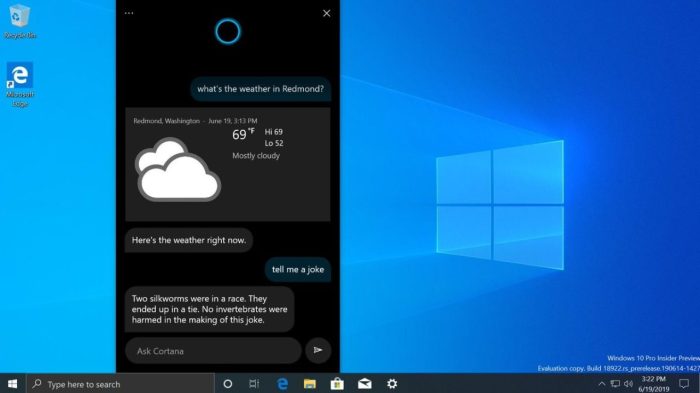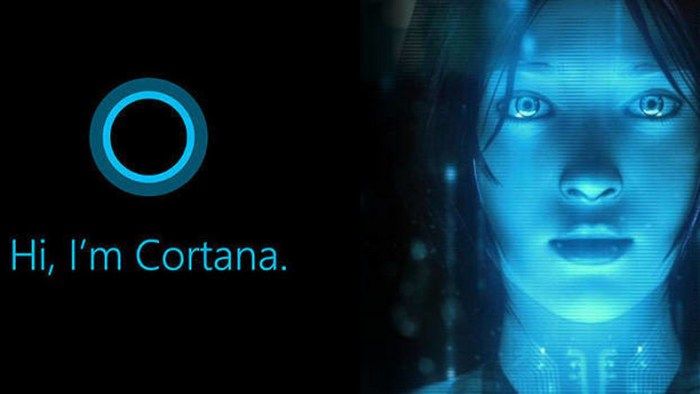Age Restrictions and Digital Privacy
The digital world has become an integral part of our lives, and for children, it’s a playground of learning and exploration. However, this digital landscape also presents unique challenges, particularly when it comes to safeguarding children’s privacy and safety. Voice assistants, like Cortana, are increasingly popular, but their use by young children raises concerns about potential risks. To mitigate these risks, age restrictions are crucial, ensuring that children are not exposed to potentially harmful content or data collection practices before they are mature enough to understand and navigate them.
Why Age Restrictions are Important for Cortana
Age restrictions on Cortana are not just arbitrary rules; they are designed to protect children from potential harm. Voice assistants like Cortana can collect significant amounts of personal data, including voice recordings, search history, and location information. This data can be used to build profiles of users’ interests and preferences, which can be valuable for targeted advertising and other commercial purposes. However, for children, this data collection can pose significant risks, particularly when they are not yet equipped to understand the implications of sharing their personal information online.
Potential Risks for Children Using Cortana
Children using Cortana without appropriate safeguards can face various risks, including:
- Data Breaches: A data breach can expose a child’s personal information, including their name, address, and online activities, to unauthorized individuals. This information could be used for identity theft or other malicious purposes.
- Privacy Violations: Cortana can collect data about a child’s online behavior, such as their search history, browsing habits, and app usage. This information can be used to create a detailed profile of their interests and preferences, which can be used for targeted advertising or other purposes. Children may not understand the implications of this data collection, and their privacy could be violated.
- Exposure to Inappropriate Content: Cortana can access and process information from the internet, which includes a vast amount of content that may not be suitable for children. If a child is using Cortana without parental supervision, they may be exposed to inappropriate content, such as violence, profanity, or sexually suggestive material.
The Role of Parental Control and Digital Literacy: Cortana Is Off Limits To Users Aged Below 13 Years Old
In today’s digital age, children are increasingly exposed to online technologies, including voice assistants like Cortana. While these tools can be beneficial for learning and entertainment, it’s crucial for parents to play an active role in managing their children’s online experiences. Parental involvement ensures a safe and responsible digital environment for young users.
Parental Control Measures for Voice Assistants
Effective parental control measures are essential for limiting access to voice assistants for children under 13. These measures help prevent exposure to inappropriate content and ensure age-appropriate use.
- Account Settings: Most voice assistants offer parental control settings within their account management options. Parents can set age restrictions, limit usage time, and filter content.
- Device Restrictions: Parents can use device settings to block access to specific apps, including voice assistants. This can be done on smartphones, tablets, and other devices.
- Parental Control Apps: Third-party parental control apps provide comprehensive monitoring and management capabilities. These apps can track online activity, block inappropriate websites, and set screen time limits.
- Open Communication: Engaging in open and honest conversations with children about online safety is crucial. Parents can discuss the potential risks associated with voice assistants and encourage responsible use.
Digital Literacy for Children
Digital literacy is vital for children to navigate the digital world safely and responsibly. It empowers them to understand online risks, protect their privacy, and make informed choices.
- Critical Thinking Skills: Digital literacy encourages children to critically evaluate online information, recognize misinformation, and understand the potential consequences of their actions.
- Privacy Awareness: Children need to understand the importance of privacy and how to protect their personal information online. This includes being cautious about sharing personal data with voice assistants.
- Cyberbullying Prevention: Digital literacy teaches children about cyberbullying, its impact, and how to report it. This helps create a safe and respectful online environment.
- Online Etiquette: Children need to learn appropriate online behavior, including respectful communication and responsible content sharing. This fosters a positive online community.
Ethical Considerations and Future Implications
Restricting access to voice assistants for children presents a complex ethical landscape with potential benefits and drawbacks. While the intention is to protect children from potential harms, it’s crucial to consider the long-term implications of such restrictions on their development and ability to navigate a technologically advanced world.
Potential Benefits and Drawbacks of Restricting Access, Cortana is off limits to users aged below 13 years old
The rationale behind age restrictions for voice assistants stems from concerns about data privacy, potential for manipulation, and the impact on children’s cognitive development. However, these restrictions can also have unintended consequences.
- Data Privacy and Security: Restricting access can protect children’s personal information from being collected and used without their consent. However, it can also limit their exposure to valuable educational and entertainment opportunities that utilize voice assistants.
- Potential for Manipulation: Voice assistants can be vulnerable to manipulation, especially by individuals with malicious intent. Restricting access can mitigate this risk, but it can also prevent children from learning to identify and address such threats.
- Cognitive Development: Some experts argue that excessive reliance on voice assistants can hinder children’s cognitive development, particularly in areas like language acquisition and problem-solving. While this argument holds some weight, it’s important to recognize that voice assistants can also be used to enhance learning and promote creativity.
Impact on Children’s Development and Adaptation
Restricting access to voice assistants could potentially limit children’s opportunities to develop essential skills for navigating a technologically advanced world.
- Digital Literacy: Early exposure to voice assistants can foster digital literacy, helping children understand how technology works and how to use it safely and effectively.
- Technological Proficiency: Voice assistants can provide a user-friendly introduction to technology, enabling children to become comfortable with voice commands and interact with digital devices.
- Problem-Solving and Critical Thinking: Engaging with voice assistants can encourage children to think critically and creatively to solve problems, particularly in situations where they need to provide specific instructions or overcome technical challenges.
Future of Voice Assistant Technology and its Influence
Voice assistant technology is rapidly evolving, and its impact on children and families is likely to grow in the coming years.
- Personalized Learning Experiences: Voice assistants have the potential to revolutionize education, providing personalized learning experiences tailored to each child’s needs and interests.
- Increased Accessibility: Voice assistants can enhance accessibility for children with disabilities, enabling them to interact with technology in new and innovative ways.
- Enhanced Communication and Collaboration: Voice assistants can facilitate communication and collaboration among children, enabling them to connect with peers and engage in interactive learning activities.
Cortana is off limits to users aged below 13 years old – The age restriction placed on Cortana serves as a reminder that the digital world requires responsible navigation, especially for young users. While technology offers endless possibilities for learning and entertainment, it’s essential to prioritize safety and privacy. Parents, educators, and technology developers must work together to create a digital landscape where children can thrive while being protected from potential risks. By fostering digital literacy and promoting age-appropriate alternatives, we can empower children to explore the digital world with confidence and responsibility.
While Cortana might be off-limits for the younger crowd, you might be surprised to find that Google Home Mini can be a bit of a party animal. Sometimes, it gets carried away with its own volume, leading to a bit of a “crash” that can be a little jarring. If you’re experiencing this issue, you’re not alone – check out this article on google home mini crash volume for some tips on taming the beast.
Maybe then, Cortana will have some competition for the title of “loudest voice in the house.”
 Standi Techno News
Standi Techno News

